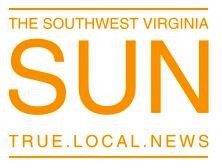By State Sen. Todd Pillion
July 1 is the official effective date for most new laws that have been passed by the General Assembly and approved by the governor.
Each year, the Division of Legislative Services publishes a sample of changes to Virginia’s laws that are likely to affect the daily lives of citizens. It is not an exhaustive list of all new laws. The 2023 edition covers topics including commerce, education, energy, professions and occupations, motor vehicles, voting, and more. Here are some specific examples:
Automatic renewal or continuous service offers; cancellation reminders; prohibited practices. The law requires suppliers of automatic renewals or continuous service offers that include a free trial that lasts more than 30 days to, within 30 days of the end of any such free trial, notify the consumer of his option to cancel the free trial before the end of the trial period to avoid an obligation to pay for the goods or services.
Fentanyl as a weapon of terrorism. The law includes any mixture or substance containing a detectable amount of fentanyl, including its isomers, esters, ethers, salts, and salts of isomers, as a weapon of terrorism for the purpose of defining terrorism offenses. The law provides that any person who knowingly and intentionally manufactures or knowingly and intentionally distributes a weapon of terrorism when such person knows that such weapon of terrorism is, or contains, any mixture or substance containing a detectable amount of fentanyl is guilty of a Class 4 felony.
Universal license recognition. The law establishes criteria for an individual licensed, certified, or having work experience in another state to apply to a regulatory board within the Department of Professional and Occupational Regulation and be issued an occupational license or government certification if certain conditions are met.
Phase I Utility; biennial reviews. The law makes various changes to procedures under which the State Corporation Commission reviews the earnings and sets the rates of Appalachian Power. The law provides that, in lieu of the triennial review proceedings required under current law, Appalachian Power will be subject to biennial reviews of its rates, terms, and conditions for generation and distribution services, with the first review commencing on March 31, 2024.
Elections; absentee voting. The law requires that voters provide the last four digits of his social security number and his birth year. The law provides that the unique identifier assigned to the voter in the voter registration system will be accepted in place of the last four digits of the voter’s social security number for such purposes for those voters whose registration includes a statement of affirmation that they have never been issued a social security number.
Cannabis; regulation of THS products. The law imposes additional regulation of hemp-derived products that contain intoxicating THC. Includes a permitting system, stricter labeling rules and limits the level of THC in retail hemp products.
Minimum wage for people with disabilities. The law requires employees with disabilities hired after July 1, 2023 to be paid the state minimum wage. Employees with disabilities hired before that date and who were subject to an exemption to the minimum wage will see a phased increase in wages over the next seven years.
Right to worship. In emergency declarations, the governor is prohibited from imposing closures or limitations on places of worship that are more restrictive than those placed on businesses and secular organizations.
Protecting agricultural land. The law prohibits China or any “foreign adversary” from purchasing agricultural land in the Commonwealth of Virginia.
The following bills that I sponsored this year will also take effect July 1:
· SB1414 establishes the Commonwealth Opioid Abatement and Remediation Fund to receive the state’s direct share of settlement dollars.
· SB1415 requires development of an opioid impact reduction plan.
· SB1418 preserves access to care by establishing that health care providers are not required to maintain a physical presence in the Commonwealth to maintain eligibility to enroll as a Medicaid provider.
· SB1420 makes permanent the business park electric infrastructure program to promote economic development in rural areas.
· SB1421 improves the process for adult protective services referrals.
· SB1422 increases reimbursements for students enrolled in noncredit workforce training programs.
SB1538 requires the state to provide reimbursement to pharmacists when services rendered are within their scope of practice.


